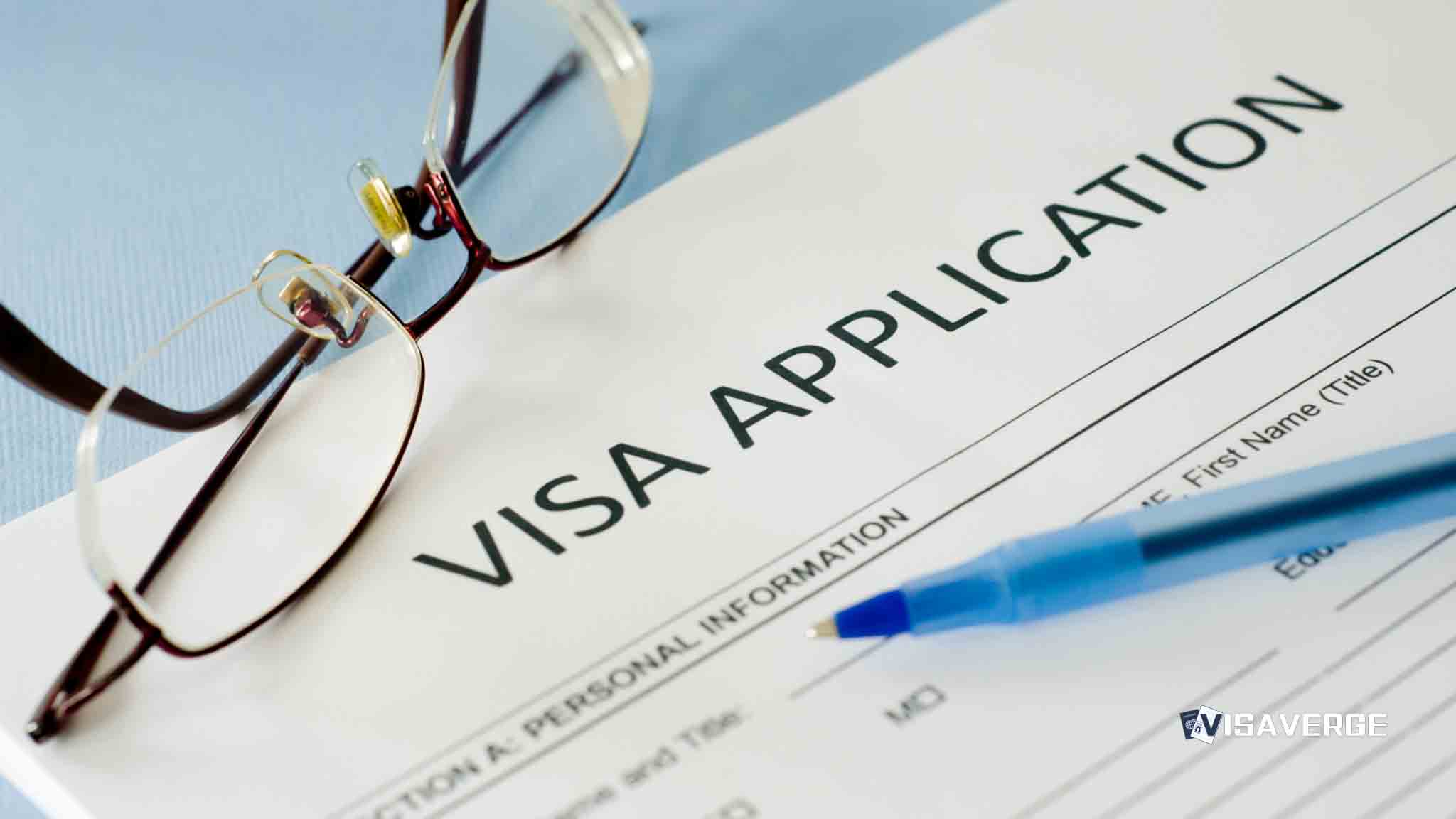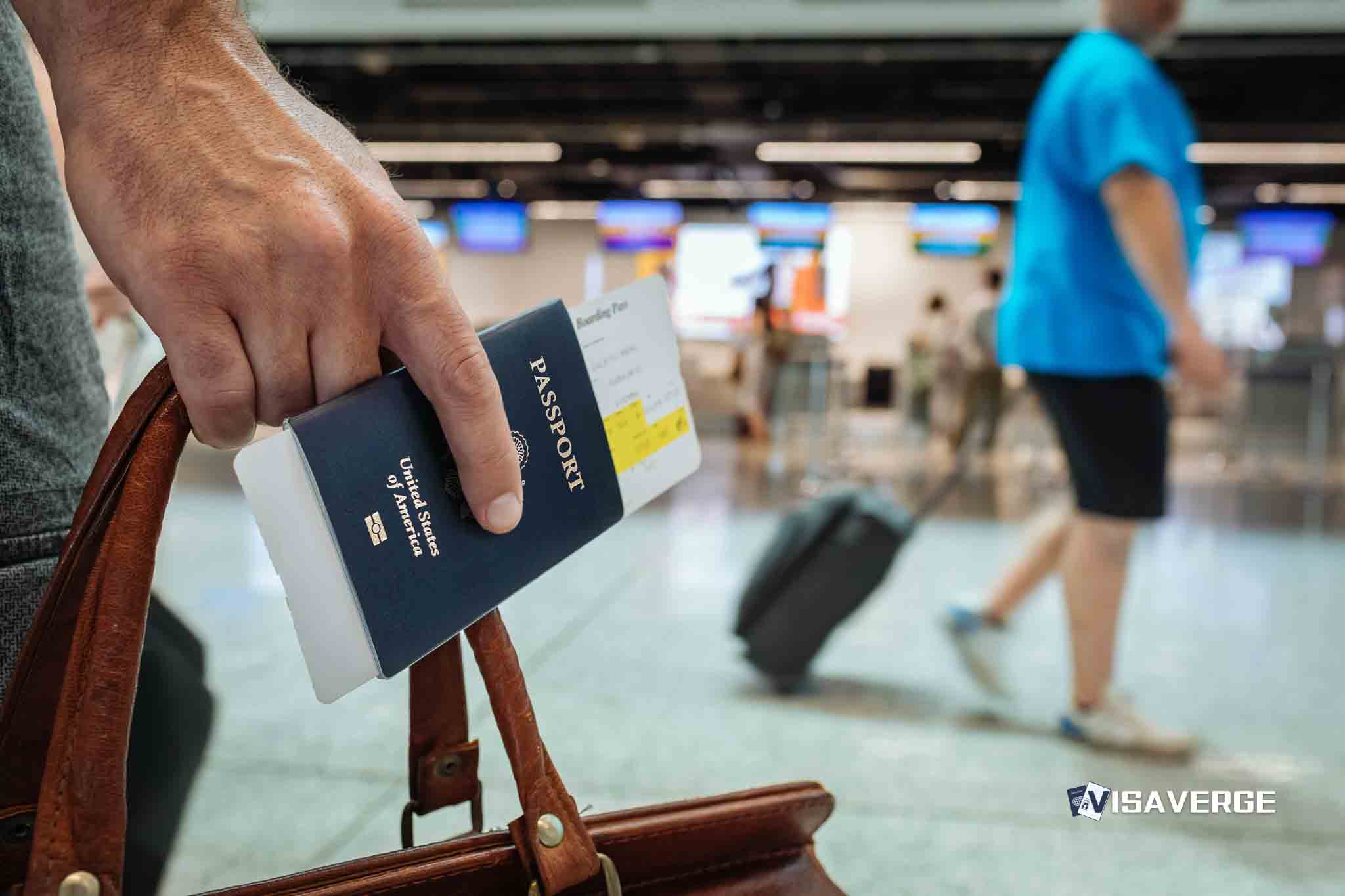(UNITED STATES) The long-planned $250 Visa Integrity Fee has not started yet, with the U.S. Department of State and Department of Homeland Security still working on how to roll it out, officials and industry trackers say. The charge, created by the One Big Beautiful Bill Act—also cited as H.R. 1—was signed into law on July 4, 2025, and was widely expected to take effect this fall. As of November 10, 2025, however, there is no official start date, leaving consular posts and visa applicants in limbo while agencies finalize procedures and announce when collections will begin.
What the law requires

- The statute establishes a mandatory $250 charge added to every nonimmigrant visa issuance handled abroad by the State Department.
- It applies to common visa categories such as H-1B, L-1, F-1, and B-1/B-2, and is in addition to existing machine-readable visa application fees and any reciprocity fees.
- The charge is collected one time at issuance by consular officials, not during later status actions inside the United States. That means USCIS processes (like a change or extension of status) do not trigger this fee.
Why rollout has been delayed
A Federal Register notice in July indicated more work was needed before collections could begin. The government must complete cross-agency coordination prior to implementation, which can involve:
- Technical billing systems and payment codes
- Refund tracking mechanisms and claims processing
- Clear operational guidance and cashier training for consular sections worldwide
The Department of State’s Bureau of Consular Affairs has not yet issued field guidance on when or how the fee will be applied. An official information page on State Department visa fees still shows standard fee tables without the new line item; monitor updates at travel.state.gov.
Important: There is currently no official start date and consulates are not yet charging the fee.
Refund provision — not operational yet
The law allows for a possible refund of the Visa Integrity Fee after a visa expires, but the refund program is not live. To qualify, travelers would need to meet strict conditions such as:
- No overstay
- No unauthorized work
- Timely departure or a clean adjustment/change of status
However:
- There is no operational system to request or verify eligibility.
- No published process exists to submit a refund claim.
- Until the government builds and announces a refund pathway, applicants should assume the $250 will be charged and retained, with refunds unavailable.
Who will be affected (when it starts)
The policy covers every nonimmigrant visa issuance regardless of nationality. Examples of potential impact:
- Families on holiday: a family of four on B-2 tourist visas could face $1,000 in added cost.
- Students: an F-1 student would pay an additional $250 on top of the visa fee and the separate SEVIS fee.
- Workers and executives on H, L, or treaty visas: each visa issuance would carry the flat $250 fee.
This layering effect has prompted travel groups and university advisers to press for timing clarity so applicants can budget accordingly.
Related fee changes already moving forward
Some measures in the same legislation are already active or scheduled:
- Fees tied to Temporary Protected Status and the Employment Authorization Document (EAD) have moved forward per agency notices.
- The bill set a $24 Form I-94 fee at entry, overseen by Customs and Border Protection. Travelers can review and print arrival/departure records at i94.cbp.dhs.gov.
- Workers renewing or replacing an EAD use Form I-765, posted at uscis.gov/i-765.
These separate tracks show the government can phase in different fee measures while the Visa Integrity Fee remains pending.
Inflation indexing
- The law sets the Visa Integrity Fee to rise annually starting in fiscal year 2026, based on the Consumer Price Index.
- The initial $250 is a starting point, not a permanent amount.
- Applicants and employers should expect yearly adjustments once collections begin, which affects budgets for multinational rotations and long-term staffing plans.
Current on-the-ground situation
- Consulates have not started charging the fee, and scheduling systems have not added a required payment step.
- Applicants report standard receipts that cover existing application fees and reciprocity charges, but not the new line item.
- Analysis by VisaVerge.com indicates several posts prepared for an autumn rollout and then paused after Washington signaled more coordination time was needed.
- Local messaging is inconsistent: some consular websites note pending changes while others are silent, complicating planning for travelers and students.
Operational challenges and why agencies are cautious
Common reasons for delay include:
- Updating payment codes and cashier training
- Establishing audit procedures and interagency data sharing
- Building a reliable refund framework to confirm visa compliance across agencies
The refund requirement is particularly complex: creating a secure, global-scale system to match travelers and return money years later is not simple, and agencies are reluctant to start collections without that capability.
Stakeholder concerns and positions
- Travel and education groups want clear rules and consistent timing to avoid disrupting admissions and travel planning.
- University officers fear a fee activation mid-admissions could surprise incoming students.
- Business groups want predictability for scheduled assignments.
- Advocates warn added fees may deter low-income families from travel for events like weddings and funerals.
- Lawmakers who supported the fee say it would fund integrity measures and offset enforcement and processing costs under H.R. 1.
Practical steps applicants should take now
Applicants can do two simple things to reduce surprise:
- Check the State Department’s official fee page and the relevant consulate website in the weeks before a visa interview to see whether the Visa Integrity Fee has been activated: travel.state.gov.
- Keep records from travel and status actions (receipts, departure records, USCIS filings), since those may matter later if a refund system goes live.
Bottom line
- The $250 Visa Integrity Fee is not yet being collected, and there is no firm launch date.
- Agencies say they are coordinating; the public record indicates pending guidance from DHS to the State Department is needed before consular officers can process payments and receipts.
- Until guidance and systems are in place, the cost of a visa remains what it was before the law passed, even as applicants should prepare for the fee to be activated with potentially little advance notice.
Frequently Asked Questions
This Article in a Nutshell
The One Big Beautiful Bill Act established a $250 Visa Integrity Fee for every nonimmigrant visa issuance, but as of November 10, 2025, agencies have not set a start date. State and DHS are coordinating technical billing, refund tracking, and consular guidance before rollout. The fee applies to categories like H-1B, L-1, F-1, and B-1/B-2 and will be indexed to inflation from fiscal year 2026. Applicants should monitor official sites and retain travel records in case a future refund process opens.













